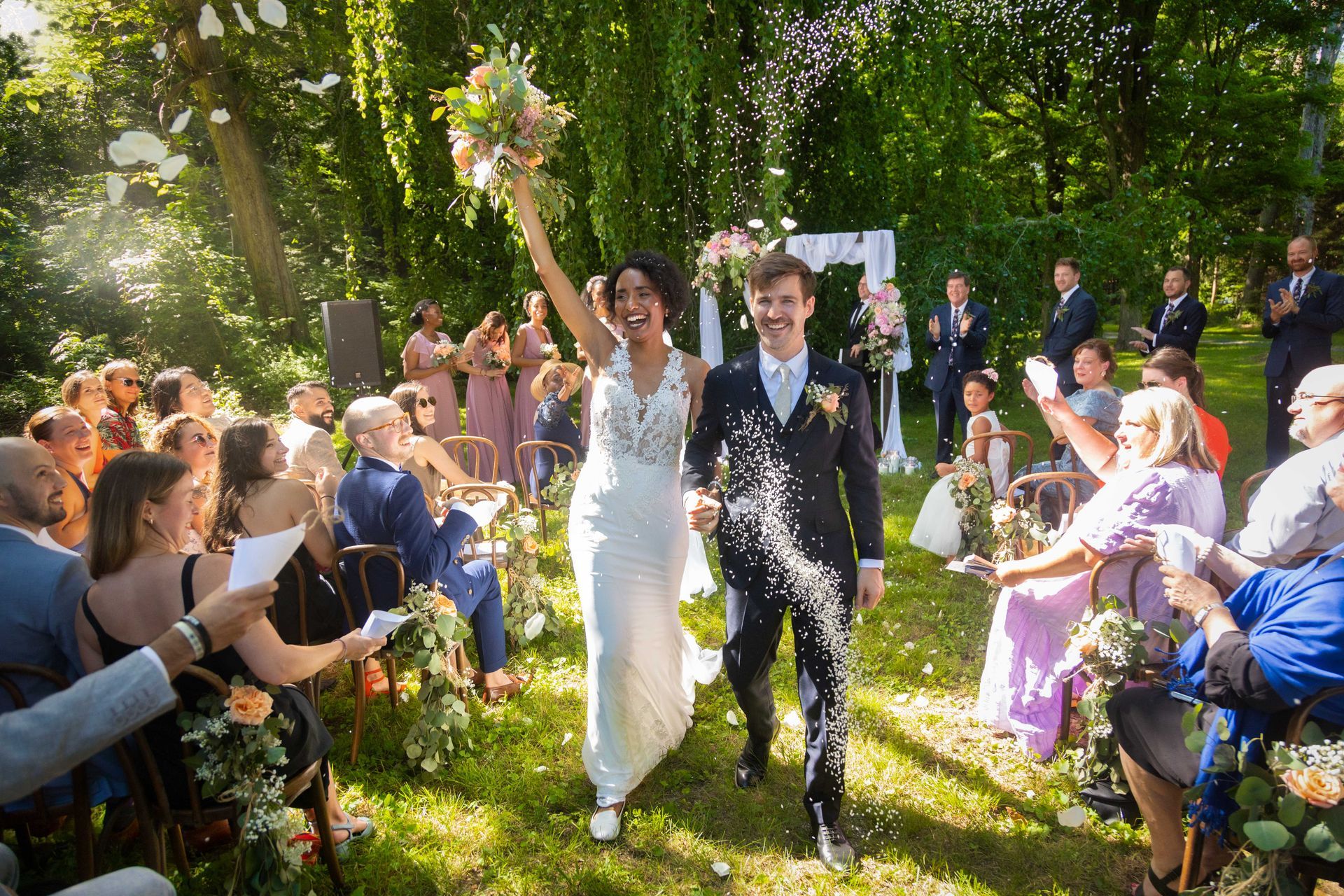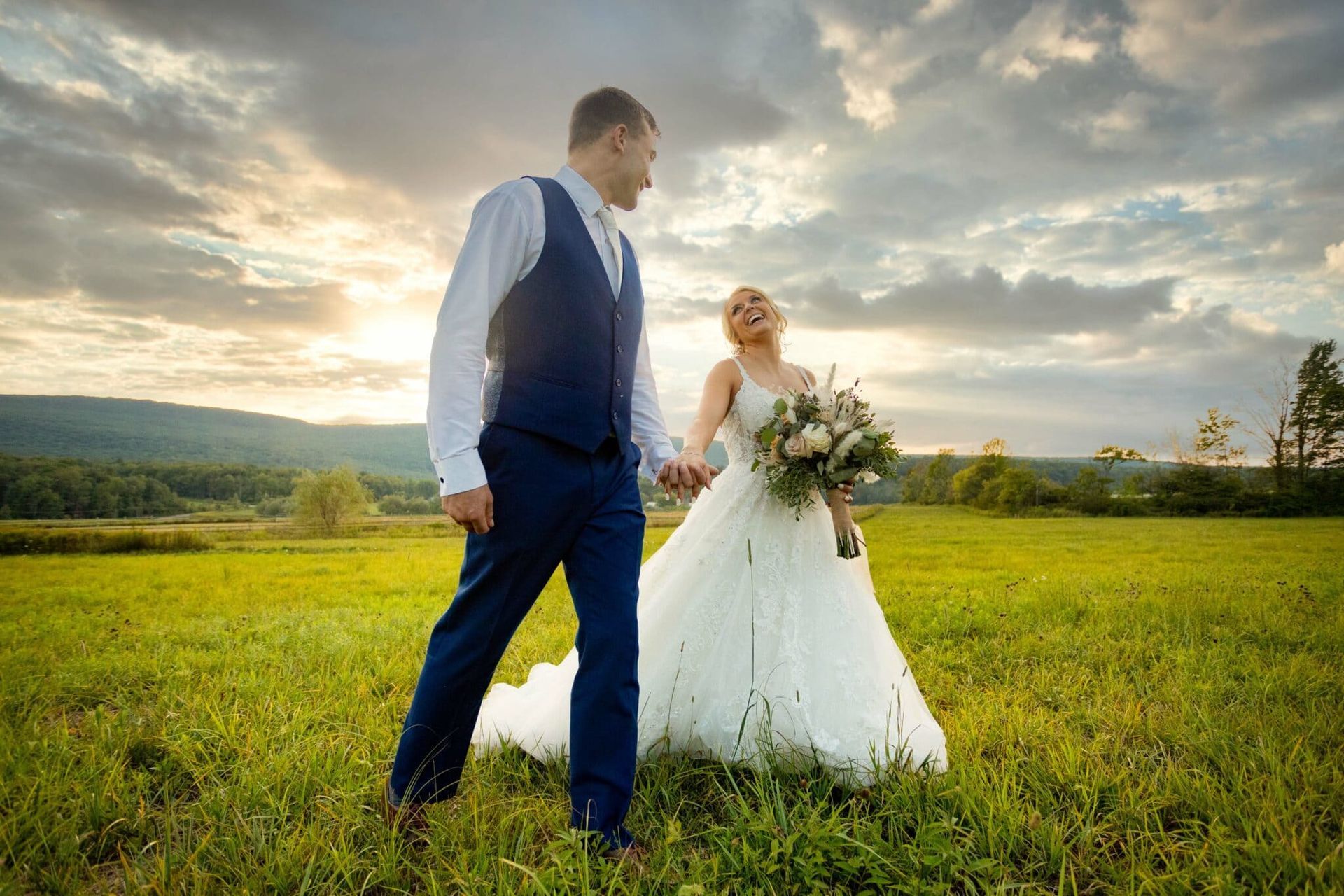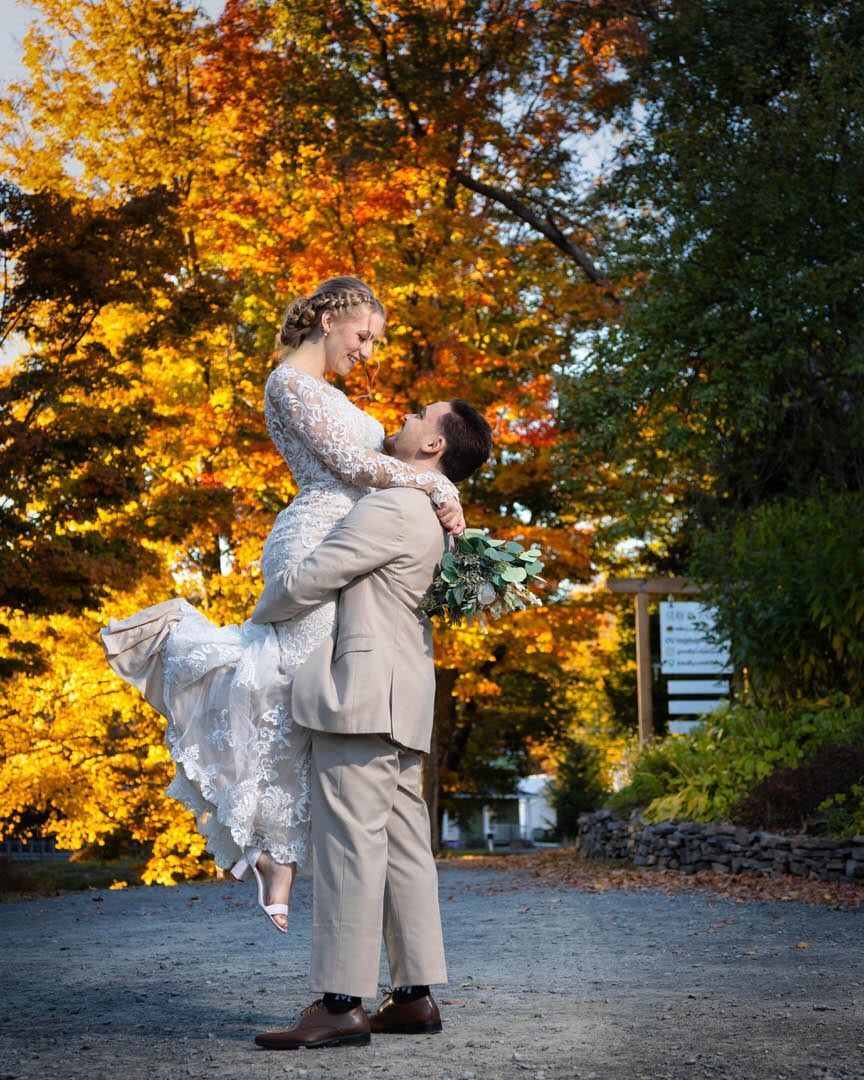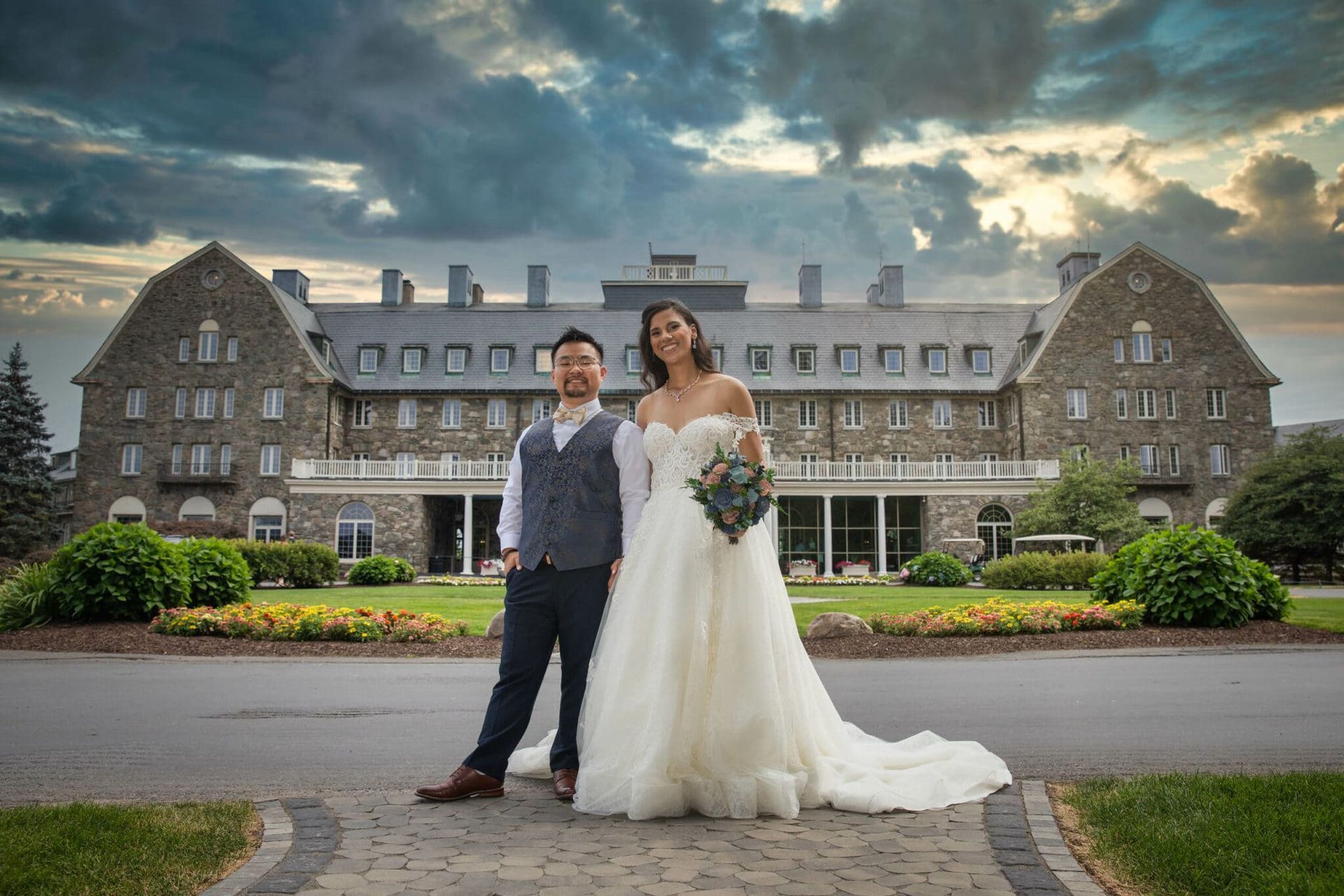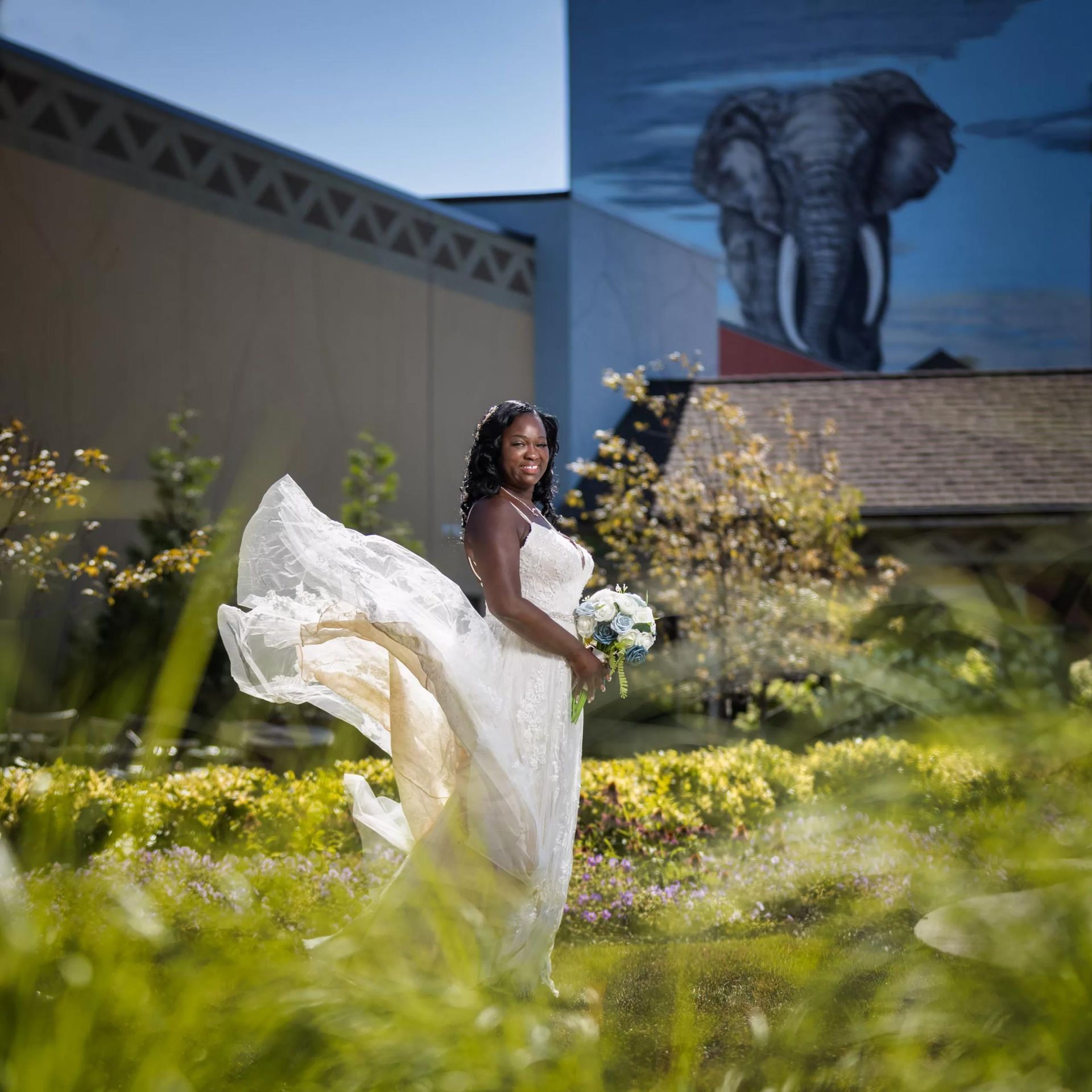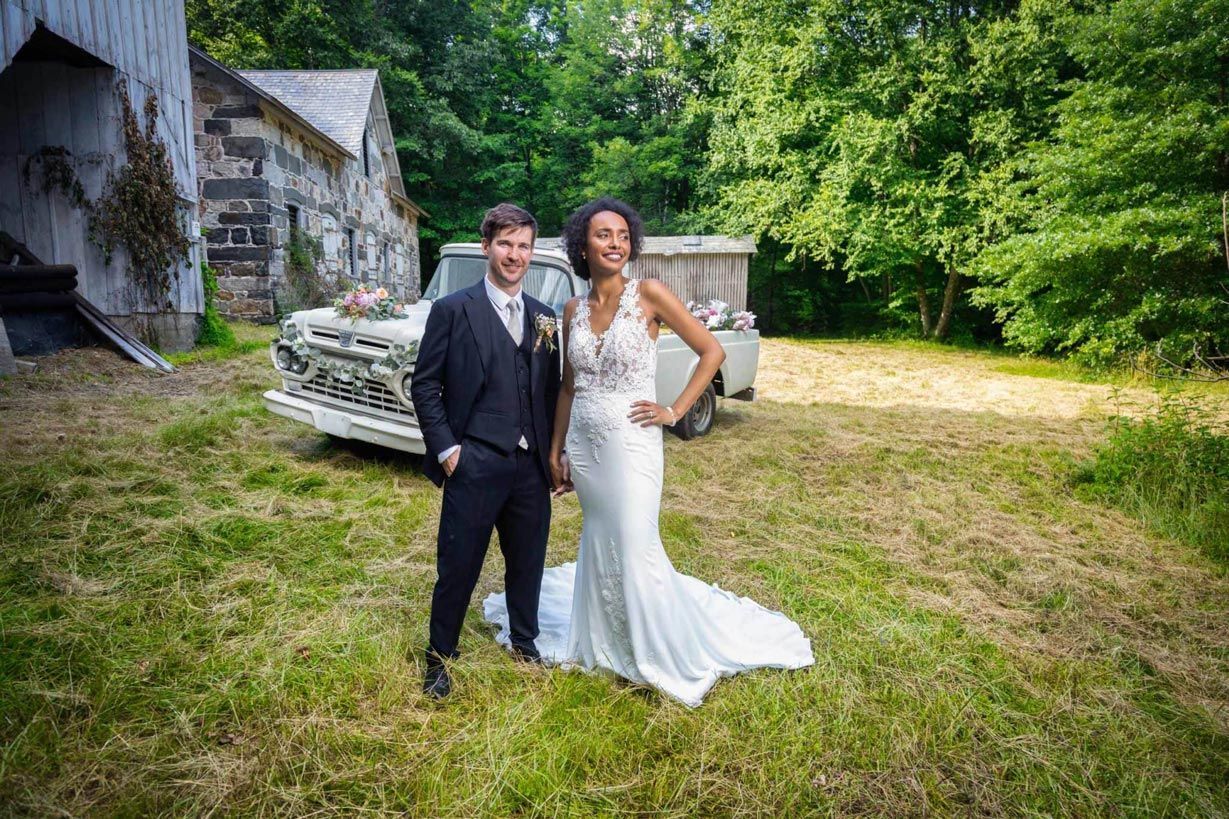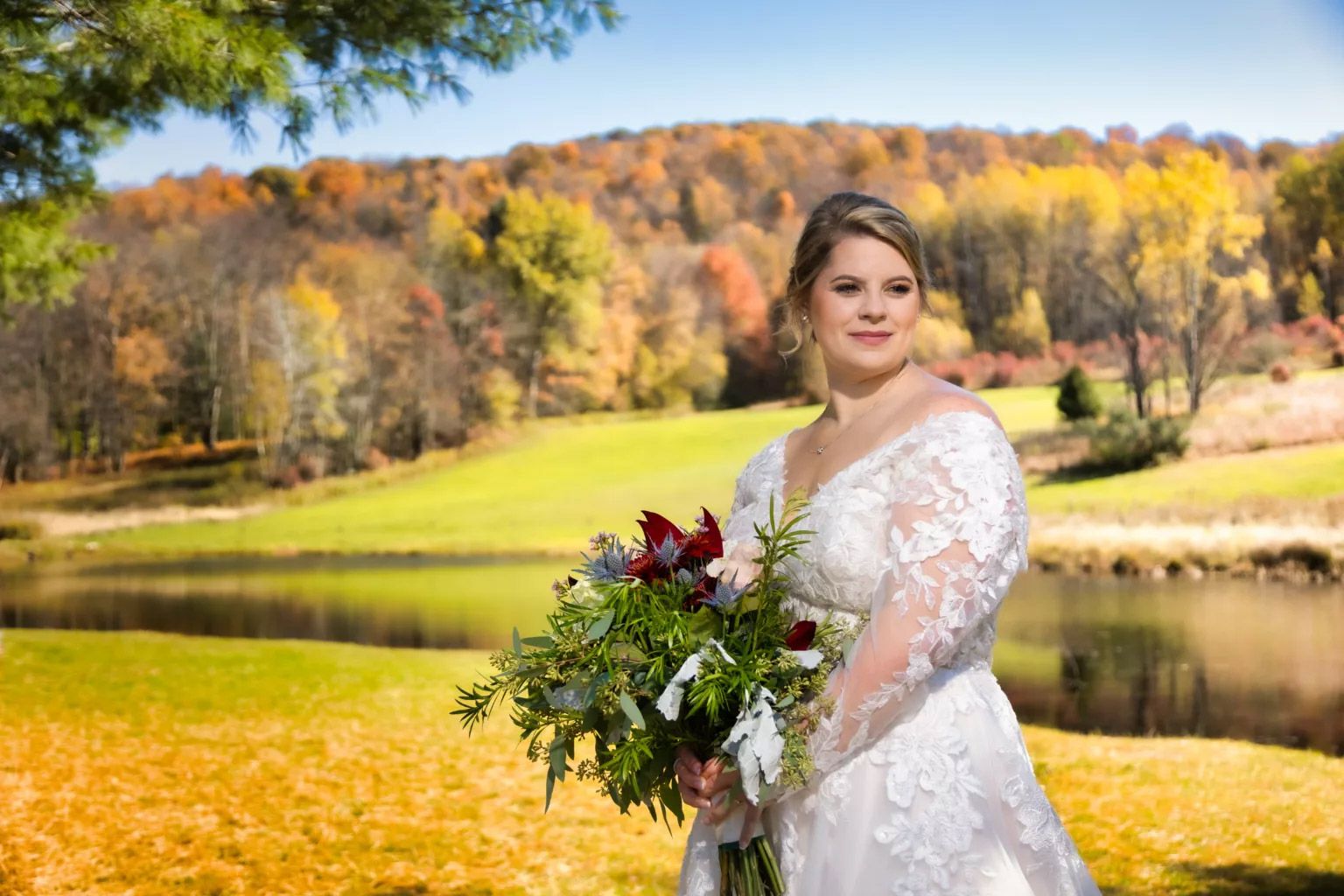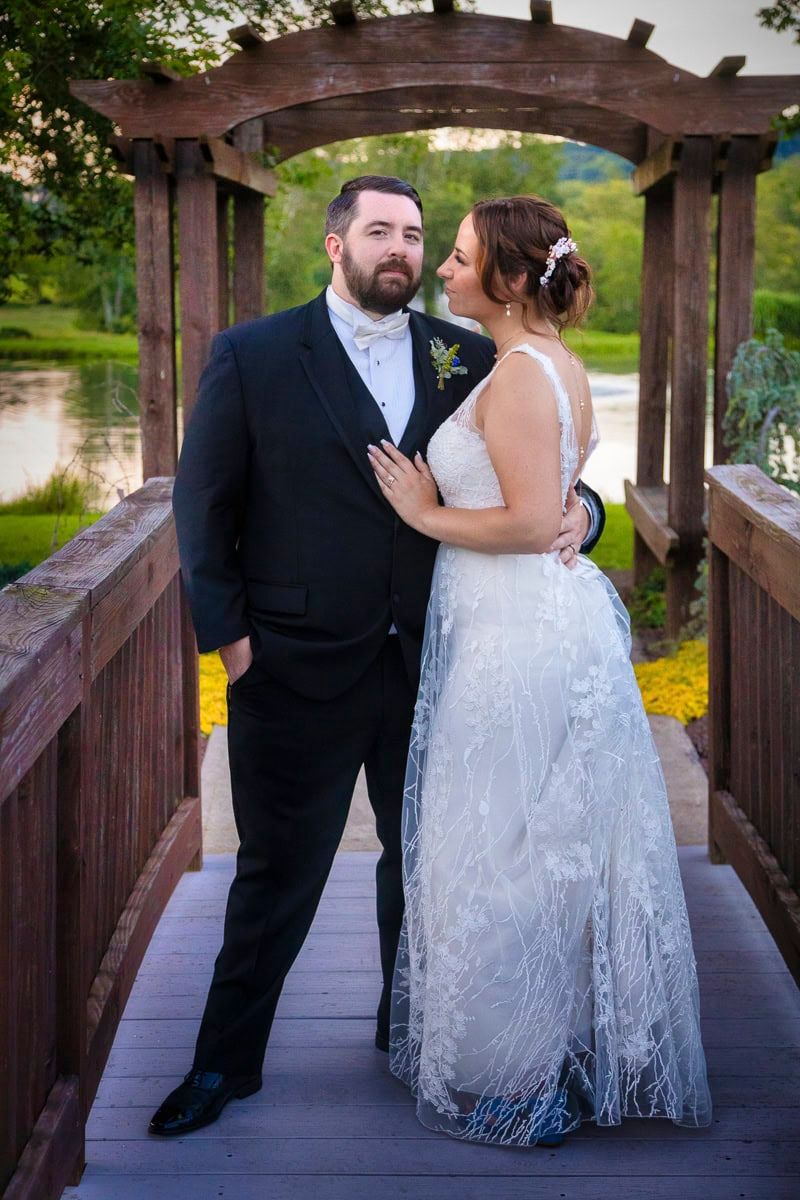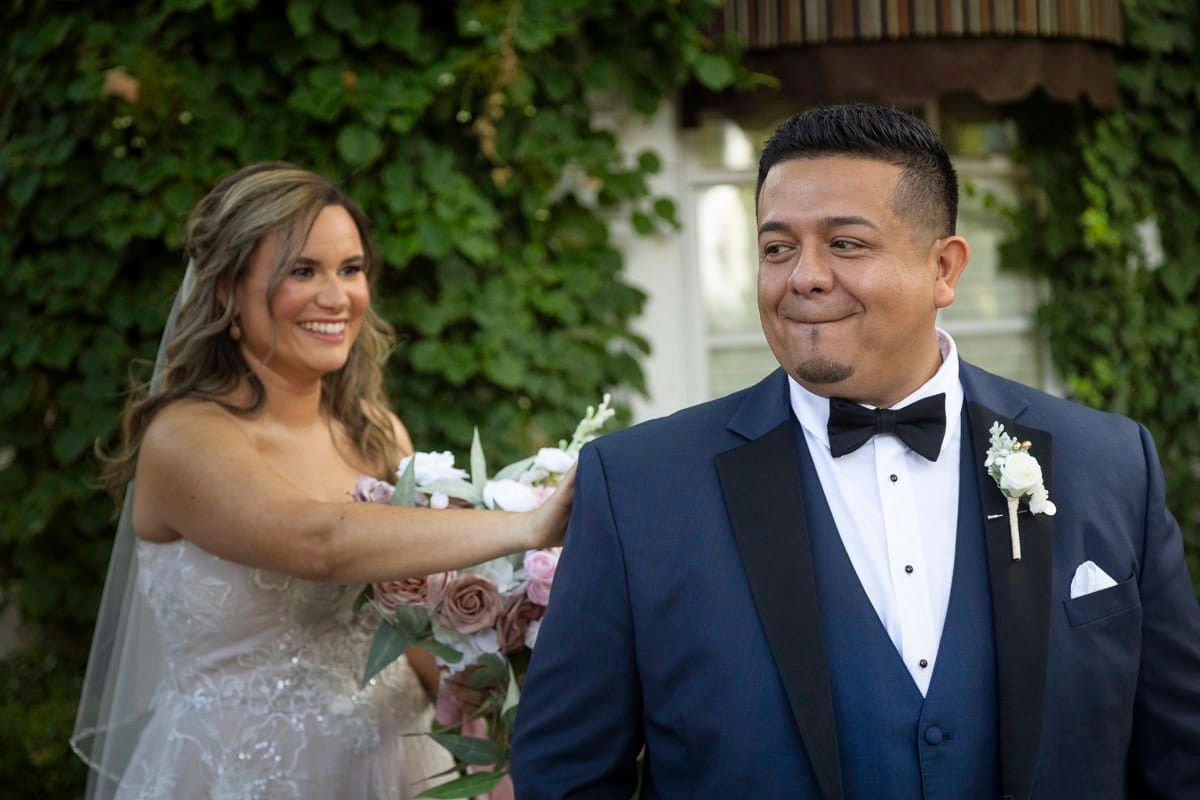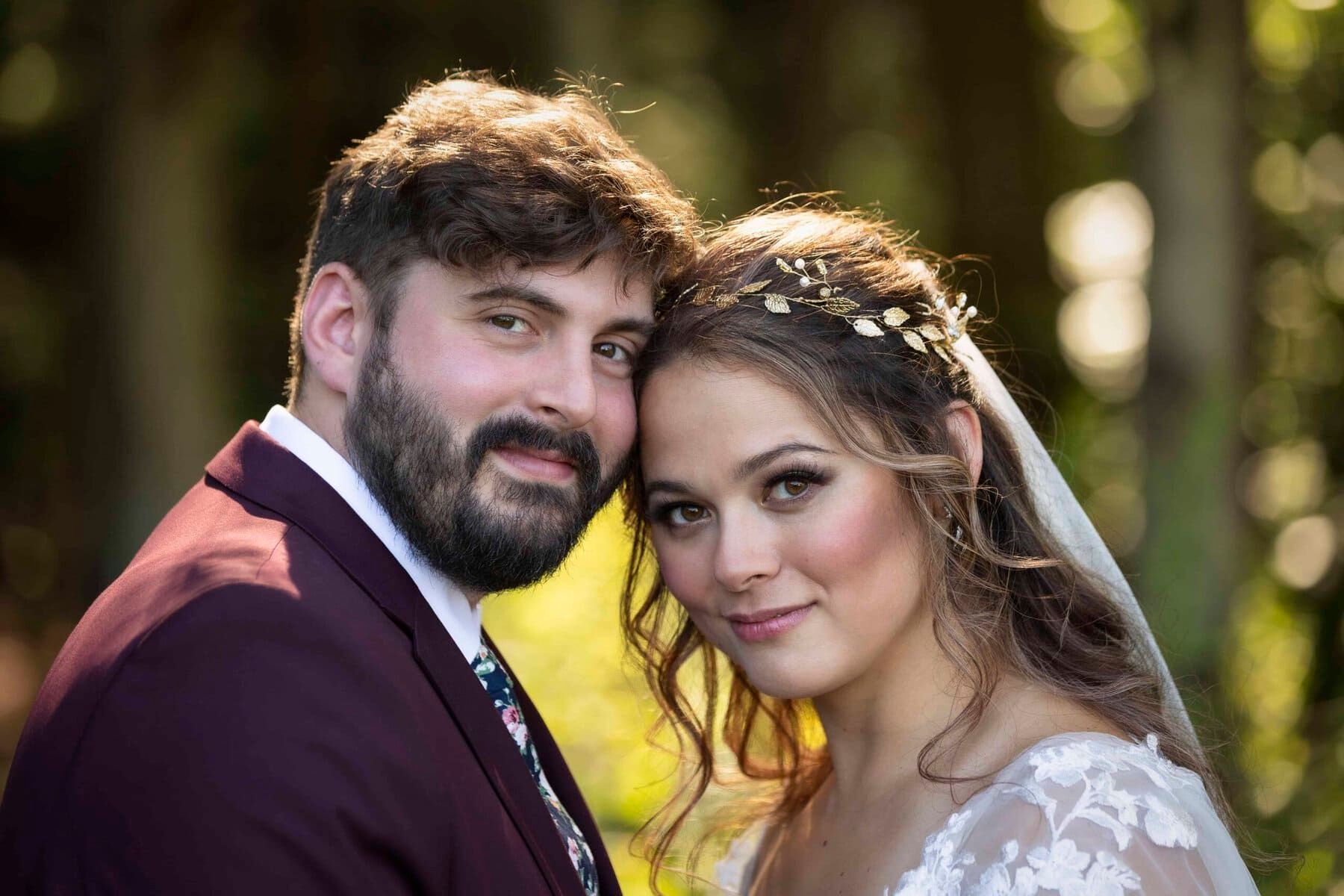How To Plan the Perfect Church Wedding
Church Wedding
Planning your dream wedding and considering a church ceremony? While deeply meaningful, navigating the traditions and requirements of a church wedding can often be overwhelming. This comprehensive guide is here to demystify the process for you - from understanding differing customs between Catholic and Protestant ceremonies to what documents you'll need, how to best coordinate with church staff, music guidelines, photography considerations and more! Let's dive into creating that unforgettable sacred experience on your special day.
Key Takeaways
- Church weddings bring a spiritual dimension to your special day, providing an opportunity to seek God's guidance and blessing on your union.
- Catholic and Protestant weddings have key differences in overall structure, role of clergy, sacraments, rituals, views on divorce, and pre-wedding requirements.
- Important considerations for a church wedding include understanding the church's requirements and rules, obtaining necessary documents like marriage licenses and baptismal certificates, adhering to dress code guidelines, and being familiar with the ceremony structure
PROS AND CONS OF CHURCH WEDDINGS
Church weddings have their own set of advantages and disadvantages that couples should consider.
PROS OF A CHURCH WEDDING CEREMONY
A church wedding ceremony brings a number of advantages that can't be understated.
- A spiritual dimension is added to your wedding ceremony, which involves not just you and your partner but a higher power as well.
- It provides an avenue to seek God's guidance and blessing on your union, being the main focus of the ceremony.
- The procedure is steeped in time - honored traditions that originate from the teachings of the Catholic Church.
- Preparation for a church wedding usually involves meeting with clergy to discuss guidelines and requirements, thus offering a deeper understanding and connection with your faith.
- Typically held in spiritual settings like churches or chapels, it offers an ambiance of reverence and tranquility, making the day feel even more special.
- You'll have a minister or priest officiate your wedding, adding extra depth through religion-specific rituals during the ceremony.
- The processional - an important Christian tradition - is often seen as more strikingly beautiful within a church setting due to its solemn ambiance.
- Traditions specific to Christian weddings are easily incorporated into a church ceremony, allowing you to honor these customs fully.
CONS OF A CHURCH WEDDING CEREMONY
Navigating the beautiful journey of a church wedding can occasionally present a set of challenges you may need to overcome. Here are some cons to consider concerning a church wedding ceremony:
- Strict Rules: Many churches have strict rules about decoration, music, and photography. Brides aiming for creative freedom might find these regulations limiting.
- Pre-Wedding Requirements: Some Christian denominations require pre-marital counseling or classes before the big day.
- Dress Code: Most churches uphold modest dress codes, which might limit your choices when selecting the perfect wedding gown.
- Limited Dates and Time Slots: Churches often have restricted availability due to regular services, community activities, or other couples tying the knot.
- Guest Limitations: Depending on the size of the chapel or cathedral, there might be restrictions on the number of guests you can invite.
- Inflexible Ceremony Structure: Church weddings usually follow a traditional format that leaves little room for personalization.
- Religious Restrictions: If you intend to marry in a specific church but do not share its faith, you could face certain limitations or requirements like proof of baptism.
- Extra Fees: Besides venue rental fees, some churches may charge for essential services like choir or organist involvement.
CATHOLIC VS PROTESTANT: UNDERSTANDING CHURCH WEDDING TRADITIONS" - DETAILING THE DIFFERENCES BETWEEN CATHOLIC AND PROTESTANT WEDDINGS, HIGHLIGHTING THE OVERALL STRUCTURE, ROLE OF CLERGY, SACRAMENTS, RITUALS, VIEWS ON DIVORCE, AND PRE-WEDDING REQUIREMENTS.
| Catholic Wedding Traditions | Protestant Wedding Traditions | |
|---|---|---|
| Overall Structure | Catholic weddings involve a full Mass, lasting about an hour. | Protestant weddings are generally shorter, often consisting of a ceremony and song service lasting about 30-45 minutes. |
| Role of Clergy | A priest must officiate the wedding ceremony, representing the Catholic Church's authority. | A minister or pastor can officiate, often with a more personal connection to the couple. |
| Sacraments | Weddings are considered a sacrament and usually include communion. | Weddings aren't sacramental, and communion is not a standard part of the service. |
| Rituals | The processional, readings from the Bible, exchange of vows, ring ceremony, unity candle lighting, and nuptial blessing are common. | The ceremony often includes a processional, sermon, exchange of vows, ring ceremony, prayers, and blessings. |
| Views on Divorce | Catholic Church does not recognize divorce, and individuals who were previously married and divorced must receive annulment prior to a Catholic wedding. | Protestants, in general, have a more accommodating view on divorce and remarriage. |
| Pre-Wedding Requirements | Pre-marital counseling, commonly called "Pre-Cana," is mandatory. You'll also need to provide baptismal certificates and possibly complete other sacraments like First Communion and Confirmation. | Many Protestant denominations also require pre-marital counseling, but the baptismal and other sacramental requirements are less rigid than in Catholicism. |
THINGS TO CONSIDER FOR A CHURCH WEDDING
CHURCH REQUIREMENTS AND RULES
Planning a church wedding? Here are some important church requirements and rules to keep in mind:
- Schedule an appointment with the priest or pastor: Before proceeding with your wedding plans, it's essential to meet with the religious official who will be overseeing your ceremony. This meeting allows you to discuss any specific guidelines or requirements that the church may have.
- Attend premarital counseling: Many churches require engaged couples to participate in premarital counseling sessions. These sessions aim to prepare couples for a successful and fulfilling marriage.
- Provide necessary documents: Be prepared to provide certain documents, such as baptismal certificates, proof of confirmation, and prenuptial investigation forms. The church may also require a marriage license from the local government.
- Follow dress code guidelines: Different churches may have different dress code expectations for both the bride and groom and their wedding party. Some churches may require more modest attire or specific expectations regarding color choices.
- Respect religious symbols and traditions: Churches are sacred spaces filled with religious symbols and traditions. It's important to be mindful of these elements during your ceremony and ensure they are respected.
- Understand music limitations: While some churches allow couples to choose their own music for the ceremony, others may have restrictions on song choices or require approval beforehand. It's crucial to check with the church about any limitations regarding music selections.
- Decorations and signage: Consult with the church staff about what decorations are allowed within the sanctuary. Some churches have restrictions on floral arrangements, candles, or other decorative elements.
- Roman Catholic Diocese of Sioux Falls
NECESSARY DOCUMENTS
To ensure a smooth and hassle-free church wedding, there are certain necessary documents that you'll need to have in order. These documents may vary depending on the specific church or denomination, but here are some common ones to keep in mind:
- Marriage License: Before your church wedding can take place, you will need to obtain a valid marriage license from your local government office. This document legally authorizes you to get married and is typically valid for a certain period of time.
- Baptismal Certificate: Some churches may require couples to provide their baptismal certificate as proof that they have been baptized in the Christian faith. This is especially important for Catholic weddings.
- Confirmation Certificate: If either or both of you have been confirmed in your respective Christian traditions, you may need to provide your confirmation certificate as well.
- Pre-Cana Certificates: Pre-Cana is a requirement for many Catholic weddings, involving pre-marriage counseling and preparation courses. You will need to present certificates confirming that you have completed these sessions.
- ID Cards and Passports: It's essential to bring valid identification cards or passports with you when meeting with the priest or pastor and during the wedding ceremony itself.
- Divorce Decree (if applicable): If either of you has been previously married and divorced, some churches may require a copy of the divorce decree as proof of the dissolution of the previous marriage.
- Church Membership Proof (if required): Some churches may only conduct weddings for members of their congregation or those who have fulfilled certain membership requirements. In such cases, you might be asked to provide proof of your church membership.
DRESS CODE
One important aspect to consider when planning a church wedding is the dress code. While each church may have its own specific guidelines, it's generally expected for both the bride and groom to dress respectfully and modestly.
For brides, this often means wearing a gown that covers the shoulders and is not too revealing. Grooms are typically expected to wear formal attire such as a suit or tuxedo. The focus of a church wedding is on the sacredness of the ceremony, so it's important to choose attire that reflects this reverence while still allowing you to feel beautiful on your special day.
CEREMONY STRUCTURE
A church wedding ceremony typically follows a structured format that includes various elements. Here's an overview of the typical ceremony structure to help you understand what to expect for your special day:
- Processional: The ceremony begins with the entrance of the bridal party, including the bride and groom, bridesmaids, and groomsmen. They walk down the aisle towards the altar.
- Opening remarks: The officiant welcomes everyone and may offer prayers or words of encouragement.
- Prelude to worship: This is a time of praise and worship, where hymns or songs are sung by the congregation or performed by musicians.
- Scripture readings: Select passages from the Bible are read aloud, often chosen by the couple or recommended by their religious leader.
- Sermon or homily: The officiant delivers a message or sermon that relates to marriage, love, and commitment based on religious teachings.
- Exchange of vows: The couple makes their vows to each other, expressing their promises and commitment in front of God and witnesses.
- Exchange of rings: The couple exchanges wedding rings as a symbol of their love and commitment.
- Unity ceremony (optional): Some couples choose to incorporate a unity candle lighting, sand blending, or other symbolic ritual to represent their union.
- Blessing/prayer: A prayer is offered for the couple's future together and for God's guidance throughout their marriage.
- Pronouncement of marriage: The officiant declares the couple officially married and invites them to seal their vows with a kiss.
- Recessional: The newlywed couple leads the recessional walk down the aisle accompanied by joyful music as they exit the church.
TIPS FOR PLANNING A CHURCH WEDDING
When planning a church wedding, it's important to start by booking the venue and coordinating with the church staff for available dates and any specific requirements or guidelines.
BOOKING THE VENUE
To plan a memorable church wedding, one of the first things you should do is book the venue. Churches often have limited availability, so it's important to secure your desired date early on.
Start by contacting the church office and speaking with a representative who can guide you through the booking process. Be prepared to provide details such as your preferred wedding date, time, and any specific requirements or requests you may have.
Additionally, many churches require couples to be members of their congregation or at least attend regularly before allowing them to marry in their sanctuary. It's essential to inquire about any membership or attendance criteria when booking your venue.
Keep in mind that some churches also prioritize weddings for parishioners over non-members.
Coming Soon: Our top recommendations for Church Weddings in the New Haven Area.
COORDINATING WITH THE CHURCH STAFF
Once you have booked your church for the wedding, it's important to coordinate with the church staff to ensure everything runs smoothly. They will be able to provide you with all the necessary information and guidelines for your ceremony.
From discussing the order of events to finalizing any specific requirements, communicating effectively with the church staff is essential. Whether it's meeting in person or through email correspondence, maintaining open lines of communication will help clarify any questions or concerns you may have leading up to your big day.
Remember, they are there to assist you and make sure your wedding ceremony goes off without a hitch!
DECORATIONS AND MUSIC CONSIDERATIONS
When it comes to planning a church wedding, there are certain considerations to keep in mind when it comes to decorations and music. Here are some key points to remember:
- Decorations:
- Keep in mind the guidelines set by the church for decorations. Some churches have restrictions on what can be used or where decorations can be placed.
- Work with your florist to create arrangements that complement the beauty of the church without distracting from the sacred atmosphere.
- Consider incorporating elements such as candles or greenery to enhance the ambiance of the ceremony.
- If there are specific areas of the church that hold significance, such as an altar or pulpit, focus on highlighting these areas with special decor.
- Music:
- Discuss with your church's music director or organist about their preferred repertoire and music guidelines for your wedding ceremony.
- Choose hymns and songs that reflect your faith and hold personal meaning for you and your partner.
- Consider including a choir or live musicians to add a touch of elegance and enhance the worship experience.
- Ensure that any recorded music follows copyright regulations, especially if you plan on playing pre - recorded tracks during specific moments in the ceremony.
- The Knot: "10 Things You Need To Know About Church Weddings"
- WeddingWire: "How To Decorate A Church For Your Wedding"
Important Details for a Memorable Church Wedding
Capture the beauty and solemnity of your church wedding with these important details that will make your special day truly memorable.
Photography guidelines and examples
Capturing the perfect moments of your church wedding is essential to preserve memories that will last a lifetime. Here are some important photography guidelines and examples to consider:
- Discuss with your photographer: Before the wedding, have a conversation with your photographer about your vision and any specific shots you want. This ensures that they understand your expectations and can capture the moments you cherish.
- Respect the church's rules: Some churches may have restrictions on photography during the ceremony. Make sure to check with the officiant or venue coordinator about any limitations before planning your shots.
- Remember flash limitations: Flash photography may be prohibited during certain parts of the ceremony, especially in more traditional churches or during sacraments. Your photographer should be prepared for low-light situations and have equipment to capture beautiful images without relying heavily on flash.
- Capture candid moments: Some of the most cherished wedding photos are candid shots that convey genuine emotions. Encourage your photographer to capture natural, unposed moments throughout the day - such as laughter, tears, or stolen glances.
- Utilize the church's architecture: Churches often have stunning architectural details that can serve as beautiful backdrops for photos. Whether it's stained glass windows, intricate designs, or grand entrances, incorporate these elements into your shots for added depth and visual interest.
- Outdoor photo opportunities: If allowed by the church, take advantage of any nearby outdoor spaces for additional photo opportunities. Surrounding gardens, courtyards, or scenic views can provide a refreshing change of scenery in your wedding album.
- Group shots and portraits: Plan designated time slots for group photos with family and friends after the ceremony outside the church or in a designated area nearby. This will ensure organized and efficient group shots without interrupting the flow of the ceremony itself.
- Moments at the altar: The moment when you exchange vows at the altar is one of the most significant parts of a church wedding. Your photographer should capture close-up shots of your faces, the exchange of rings, and any special moments that occur during the ceremony.
- Creative angles and compositions: Encourage your photographer to explore different angles and compositions to create unique and artistic shots. These can add a touch of creativity to your wedding album and showcase your personalities.
- Examples of church wedding photos: Browse through wedding photography portfolios or ask your photographer for examples specific to capturing church weddings. This will give you an idea of their style and expertise in capturing the beauty of a church setting.
Music limitations
Music limitations can be an important consideration when planning a church wedding. While music adds beauty and emotion to the ceremony, it's essential to be aware of any restrictions that may exist within the religious traditions of the church.
For example, some churches only allow sacred or classical music during the ceremony, while others may have specific guidelines for song choices or instruments. Understanding these limitations will help you select appropriate music that aligns with your faith and ensures a memorable experience for everyone in attendance.
Bridal party arrangements
One important aspect to consider when planning a church wedding is the arrangement of your bridal party. The bridal party typically consists of the maid of honor, bridesmaids, best man, groomsmen, and sometimes flower girls and ring bearers.
It's important to coordinate with your venue and clergy to ensure everyone knows their role on the big day. This includes organizing seating arrangements during the ceremony and coordinating entrances and exits.
By carefully arranging your bridal party, you can create a seamless flow for an unforgettable church wedding experience that celebrates love and faith.
Conclusion
In conclusion, a church wedding offers a beautiful and meaningful setting for couples seeking to incorporate their faith into their special day. With the blessings of God and the guidance of clergy, these weddings provide a spiritual foundation for a lifetime together.
Whether Catholic or Protestant, the traditions and rituals of a church wedding create an unforgettable experience filled with love, devotion, and cherished memories.
Celebrate Your Spiritual Connection with Stunning Photography
Your church wedding is not just a ceremony; it's a profound spiritual journey as you unite with your future spouse. At LightMaster Studios, we specialize in capturing the deep emotional and spiritual connection between you and your partner, preserving these sacred moments for a lifetime.
Ready to capture the essence of your special day? Contact us today to book your consultation!
FAQs - Church Wedding
-
How far in advance should I book a church for my wedding?
 Button
ButtonIt is recommended to book a church for your wedding as soon as possible, ideally at least 6-12 months in advance.
Popular dates and times can fill up quickly, so early planning is important to secure your desired venue.
-
What requirements do I need to fulfill to have a church wedding?
 Button
ButtonRequirements may vary depending on the specific church and denomination, but typically you will need to meet certain criteria such as being an active member of the congregation or completing pre-marital counseling with the officiant.
It is best to contact your chosen church directly for their specific requirements.
-
Can I personalize my ceremony if I choose to have a church wedding?
 Button
ButtonMany churches are open to allowing personalization within the boundaries of their religious traditions.
You can discuss with the officiant about incorporating personalized vows, readings, or music that hold special meaning to you and your partner.
-
Are there any restrictions on decorations for a church wedding?
 Button
ButtonChurches often have specific guidelines regarding decorations during weddings in order to preserve the sanctity of the space.
While some churches allow extensive floral arrangements and decorations, others may have more restrictions.
It is best to consult with the church staff or event coordinator regarding their policies on decorations before making any plans or purchases.
Phone: (862) 200-7691 ○ Email: lightmasterstudios@gmail.com ○ Address: 23 Leatherman Trail Hamden, Connecticut 06518
Business Hours: Mon - Sun: Appointment only

